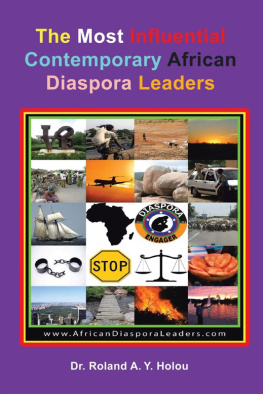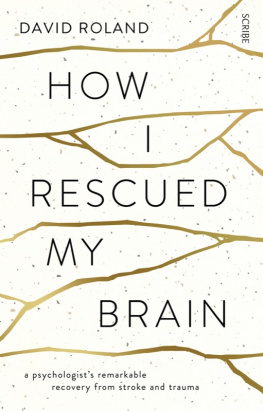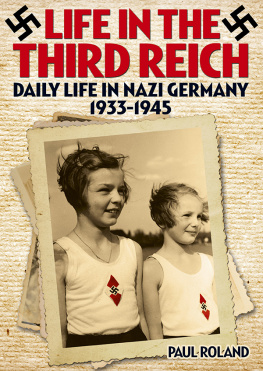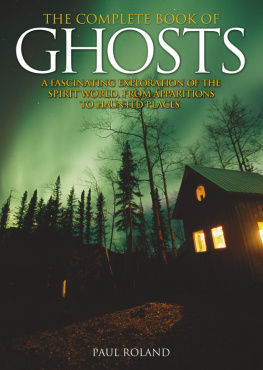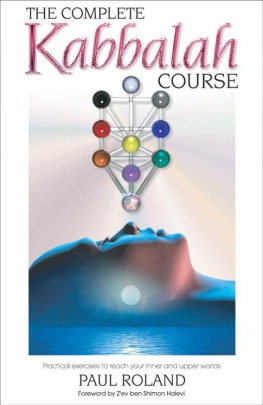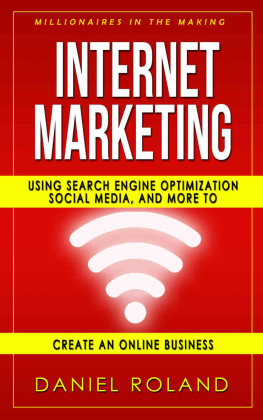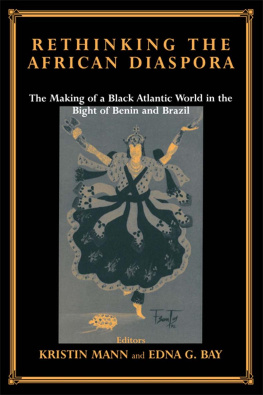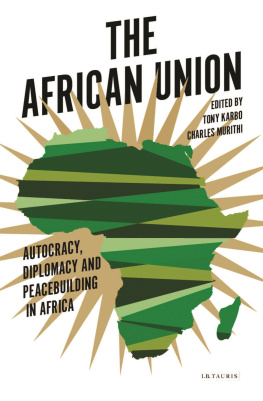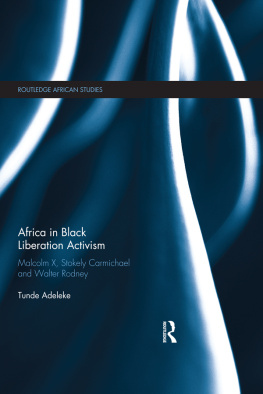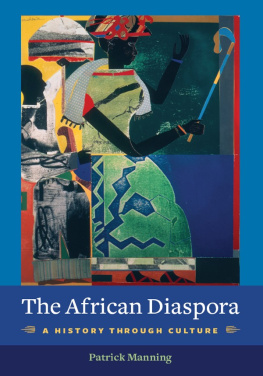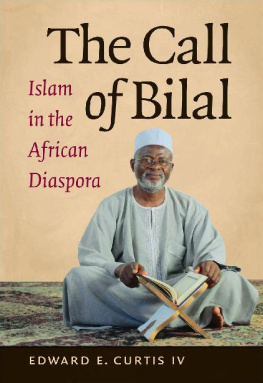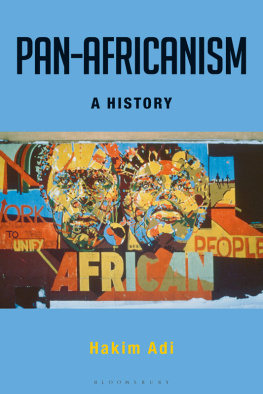The Most Influential Contemporary African Diaspora Leaders
Dr. Roland A. Y. Holou

AuthorHouse
1663 Liberty Drive
Bloomington, IN 47403
www.authorhouse.com
Phone: 1 (800) 839-8640
2016 Dr. Roland A. Y. Holou. All rights reserved.
Cover page: Collection of photos by Dr. Roland Holou (2016).
No part of this book may be reproduced, stored in a retrieval system, or transmitted by any means without the written permission of the author.
Published by AuthorHouse 04/29/2016
ISBN: 978-1-5246-0559-9 (sc)
ISBN: 978-1-5246-0558-2 (e)
Library of Congress Control Number: 2016906829
Because of the dynamic nature of the Internet, any web addresses or links contained in this book may have changed since publication and may no longer be valid. The views expressed in this work are solely those of the author and do not necessarily reflect the views of the publisher, and the publisher hereby disclaims any responsibility for them.
Table of Contents
7. Dr. Julius W. Garvey: Diaspora in New Y ork
(USA, North Ame rica)
17. Sidney O. Francis Martin: Diaspora in Nicara gua
(Caribbean / Central Ame rica)
20. Prof. Antumi Toasij: Diaspora in Colom bia
(South America) and in Spain (Eu rope)
21. Jeanne D. Henriquez: Diaspora in Cura ao
(Caribbean / South Ame rica)
36. Prophet Shepherd Bushiri (Major 1): Diasp ora
(from Malawi) in South Af rica
My definition of African Diaspora
In the context of this book, I defined the word African Diaspora as any person of African Descent who, for any reason except short diplomatic missions, is not living in his or her country of origin. Some people may call them African Australians, African Diasporans, African Hebrew Israelites, African Immigrants, African Israelites, Africans in America, African Negroes, African Refugees, African Americans (African-Americans), Afro-Aboriginals, Afro-Americans, Afro-Asiatic, Afro-Australians, Afro-Caribbeans, Afro-Descendants, Afro-Europeans, Afro-Hispanic, Afro-Indigenous, Afro-Latin Americans, Afro-Latinos, Afro-Lusophones, Afropeans, Afro-South Americans, Afro-Spaniard, Black Australians, Black Canadians, Black Diaspora, Black Europeans, Black Indians, Black Seminoles, Black Americans, Descendants of Enslaved Africans, Bush Negroes, Diaspora Africaine, Diaspora Noire, Maroons, Negres, Negroes, Pardos, and Pretos, etc.
The African Diaspora are so diverse and dispersed that it is not easy to know the Global African Diaspora Family. The longer the duration of the stay of some African Diaspora in a foreign land, the higher the likelihood that their descendants may think that they (the descendants) are native of that place that their ancestors moved to or were forced to move to long ago. Therefore, without entering into any political and demographic debates, the word African Diaspora here can be applied to any person of African Descent living outside of Africa, provided he or she is not a diplomat or someone who must return back to Africa at the end of a mission. In this book, I consider the word Diaspora as plural, not sing ular.
A little about me and why I wrote this book
Being the 9 th child of a poor family of more than 35 children, I quickly learned that, to succeed in life, I have to work very hard and count on God who provides the daily bread to the poor, the needy, and the afflicted. Since my teenage years, I was continually exploring ways to succeed in school to better my life in the future. At one point, I was taught that life is better in America than in Africa. Therefore, after completing my Bachelor Degree in Agronomy and my Master of Science Degree in Agricultural Engineering with the highest distinction (first of my class) at the University of Abomey-Calavi in Benin (West Africa), I moved to the US in 2003 as a green card holder (Permanent Resident), therefore being legal since d ay 1.
Not knowing a single person in the US, I was privileged to be hosted by a diplomat in Washington, D.C. It did not take too long before I had to sandwich myself between 3 jobs (baker, banquet server, and mattress warehouse man) separated by dozens of miles and I had to take 3 buses before reaching some of them in a cold winter in the federal capital of the USA. In the midst of those jobs, my sleeping time was reduced to a very few hours. Without those jobs, I would have not been able to pay my bills. Because they said my English was terrible, which I think was not, I had to also manage to take English classes. I decided to go to school and get my PhD, but the diplomat with whom I was living and the people I met told me that I cannot go to school yet. Not fully knowing the mainstream in the US, they gave me some advices that did not apply. I later realized that many African diplomats in the US do not know the reality of the environment surrounding them. I saw diplomats who, at the end of their mission, refused to return to Africa, and end up doing every kind of middle class job just to meet their daily needs. I saw African immigrant doctorates who became housekeepers and banquet servants, while outstanding leaders who were serving in top positions in Africa before moving to the USA became cooks in the fast food restaurants. I was shocked to find that every graduate degree obtained in Africa was not accepted in the US marketplace. I also realized that what many Africans living in Africa are taught about the USA is different from the hard reality of the land just as the many stereotypes that the people living in the USA are taught about Africa are wrong! I saw people, even Native Americans, suffering more than some Africans I left in Africa. In Benin, the first democracy in Africa, I was taught that people were not free to express themselves, but in the US, the first democracy in the world, I learned that freedom of speech is a joke and is not free. In Africa, I was taught that African politicians are the most corrupted people on earth, but in the USA, I learned that hardball politics can be worse than African political corrup tion.
Before I moved to the US, the worlds biggest economy, I was taught that God is white, and that white people are like God and that they are better than Blacks. Nevertheless, during my stay in the US, I saw some white people doing evil things, even worse than what I could have ever imagined in Africa, the Black Continent. I was shocked by the lack of social life in the US where people seem to cling to their loneliness in search of their happiness. I was stunned by the statistics of abortion, suicide, and murder in the US which is devastating lives more than the African witchcraft or sorcery that I thought I was leaving behind me. Before I moved to the US, I used to think that Africa is the only continent where people can be hungry. Yet in the US, I saw many poor people who were even denied food stamps while they do not have anything to eat. In Africa, I could have never imagined that many people in the US go to bed hungry because they do not have anything to eat. In the US, I saw many people homeless, a concept I never imagined in my home village where everybody has at least a place to sleep and where people like to share what they have! Then, I also learned that a good American must have a credit card, even if he or she does not want to borrow! I was shocked to learn that the USA is the most indebted country in the world whereas I was taught in Africa that the debt of Africa is the main cause of its poverty, yet Africa is very rich. When some Africans see nice buildings in movies, they think that everybody in America or in Europe is very rich. Similarly, when some Europeans and Americans see negative things the media show them about Africa, they think that everybody in Africa is poor! Countless people are very wealthy in the US of course, but many of them are very miserable. To make a long story short, I was very disappointed with how many people I met and learned about were suffering in the US, the land of opportunities, which many consider to be the greatest nation on e arth.
Next page
